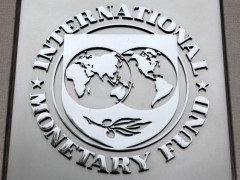Why Ghana’s IMF Bailout May Soon Repeat Itself

Recently, in one of my economics classes, a heated discussion erupted on Ghana’s International Monetary Fund (IMF) bailout programme. The discussion comes at a time when the country is grappling with high inflation, continuous depreciation of the cedi against major international currencies and high fiscal deficits which have seen the economy go through an intense macroeconomic instability and depression.
Ghana has a signed a deal with IMF to get $918 million to help it ease its economic challenges. Already $114m of this money has been received by the Bank of Ghana. The IMF bailout is an intervention aimed at stabilizing Ghana’s economy following a near collapse after high indebtedness. This bailout comes with conditions like reducing the size of the public sector. This is because the public sector consumed about 60 to 70 percent of government revenue through salaries. The bailout has been secured already.
In the discussion many thought asserted that the IMF bailout is a step in the right direction given the hard-pressed situation we are in now. Others saw it as a wrong approach by the government and their reasons were, the conditions attached to the bailout programme. They think the IMF conditions will even pose other problems as far as the welfare of the citizens are concerned especially with regards to employment and increment in taxes.
Incidentally, Ghana was seen as an economic rising star in the early 2000s through to 2008. The country was a toast of the international development community because of the sharp increase in its GDP which quadrupled between the period of 2001 and 2008 moving it from a HIPC (Highly Indebted Poor Country) to a lower middle income status. There was a relief of $4.2 billion dollars after its completion in 2001.
status. There was a relief of $4.2 billion dollars after its completion in 2001.
The discovery of oil in 2007 and its exportation four years later catapulted the country into economic stability and this was characterised by increase in GDP to a rate of about 15% and that was an unprecedented feat for its economy. But, a few years down the line, this same country is battling economic problems which have propelled us to seek for another bailout from the IMF.
One important thing to note is that, Ghana is not a novice to bailout programmes by the Bretton-Woods institutions especially the IMF, these programmes happened six times between 1967 and 2012. However, after bright prospects to being an economic lighthouse through discovery of oil, there still lingers, macroeconomic problems. What then is the cause?
As stated early on, Ghana has again signed a deal with the IMF for an economic bailout. What will happens if after this three (3) year programme and beyond, the same economic woes hit us in the face? What would have caused this? Many a time, it is blamed on corrupt leaders who siphon huge sums of money into their accounts. There are often situations where some “unwanted” policies by government attract gargantuan amount of money as well as resources. That is right.
Ideally, policies relating to fiscal economy are to be discussed extensively with the parliamentarians with consultation with stakeholders of the sector which is being affected by the policy. Most African countries especially Ghana is characterised by shoddy and lazy processes in putting in measures as far as government spending is concerned. Heavy government spending leaves the economy in a weak state as money to run the country in sensitive areas become non-existent.
In Economics, fiscal policy regulators attempt to improve unemployment rates, control inflation and influence interest rates in an effort to control the economy. What this means is that the fiscal policy should be designed in a way that it will create jobs , reduce the rate of inflation and generally stabilise the economy. If this is the responsibility of the government, why should it turn to face the IMF in the quest to put the economy on its feet?
, reduce the rate of inflation and generally stabilise the economy. If this is the responsibility of the government, why should it turn to face the IMF in the quest to put the economy on its feet?


